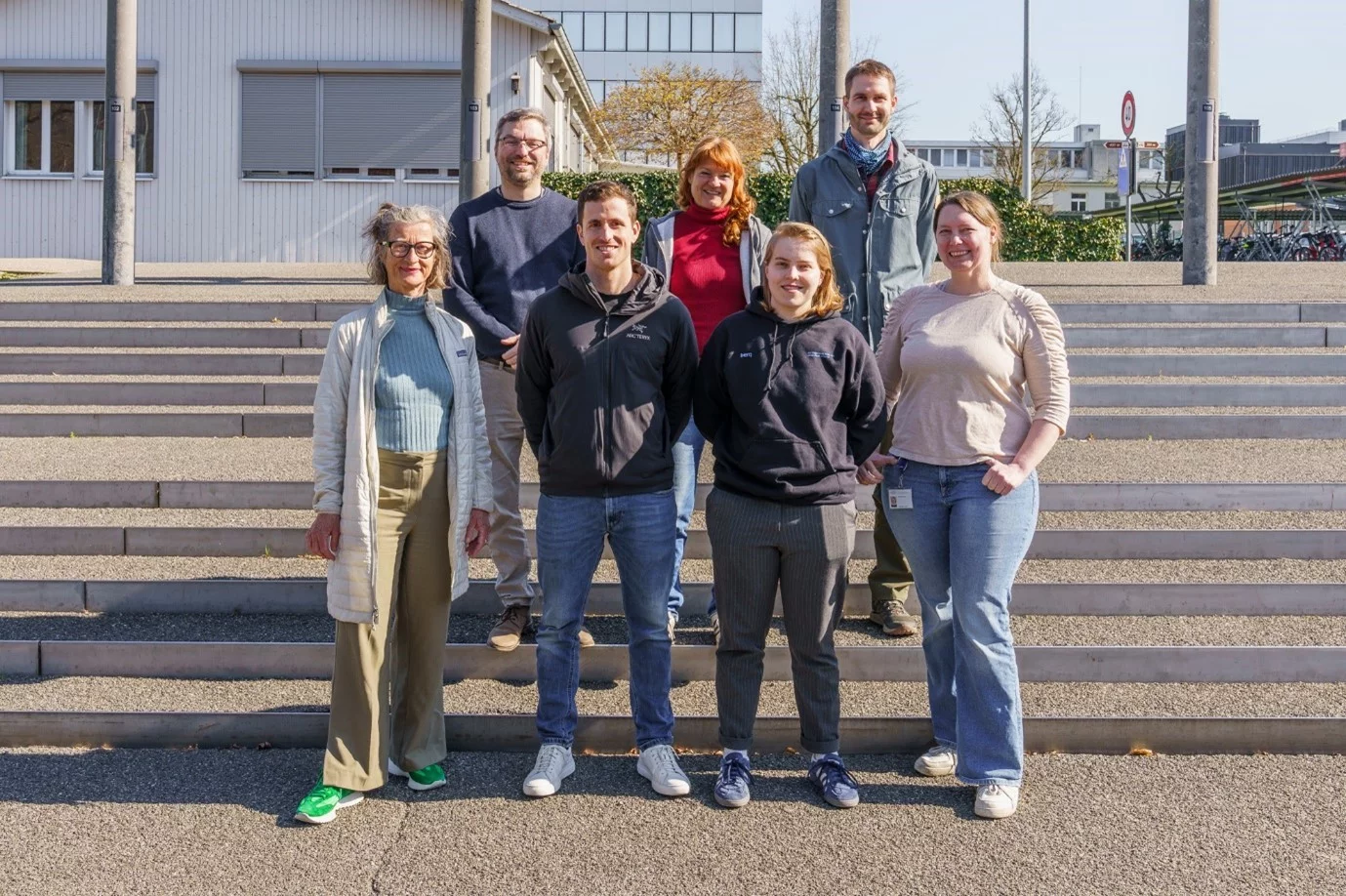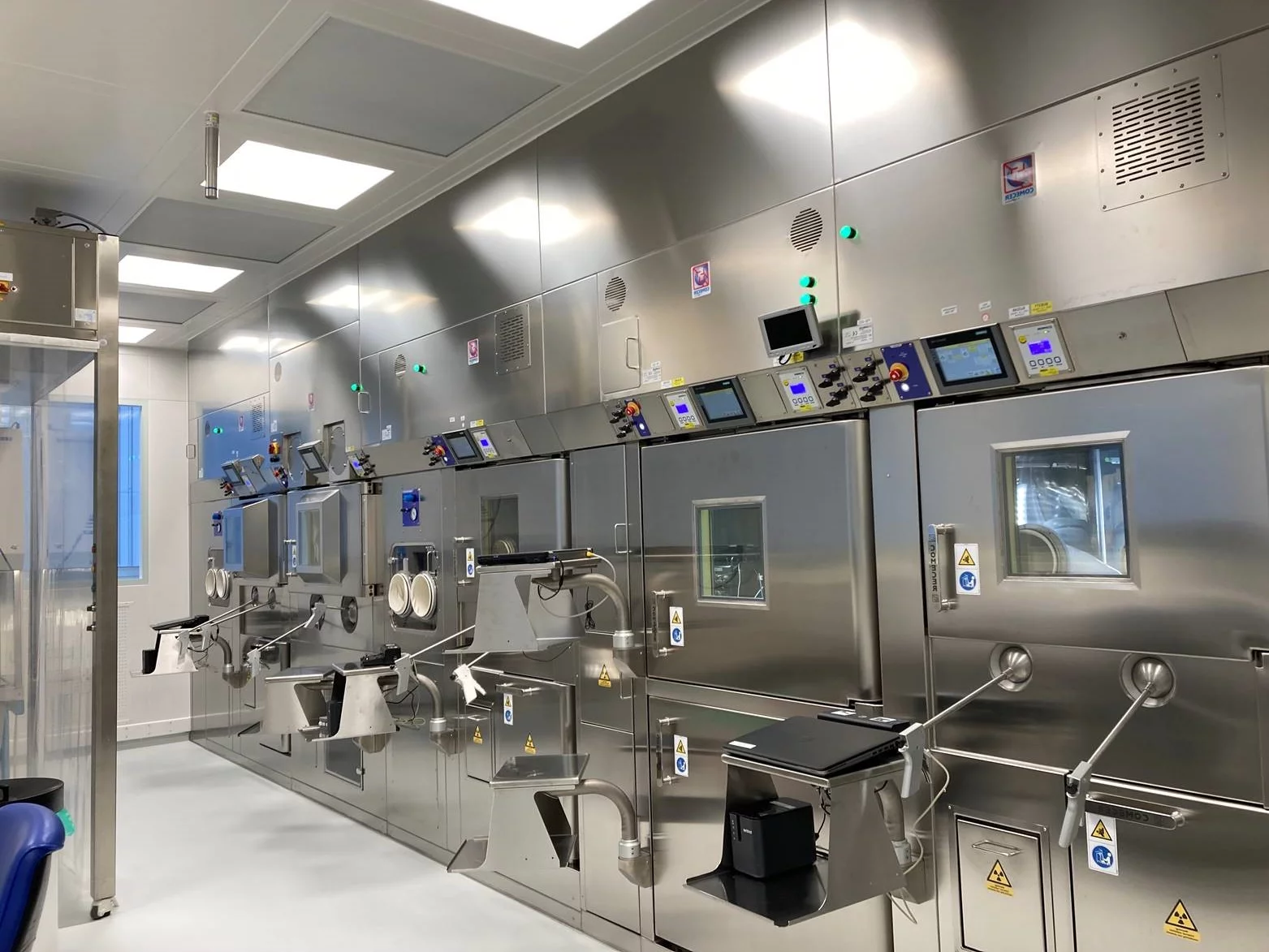Our Group
We are a dedicated team of radiochemists, radiopharmacists and lab technicians specializing in radiopharmaceutical drug production for clinical trials. Our main goal is the translation of synthesis methods from preclinical research to drug product manufacture, suitable for human use for then supplying clinical trials with just-in-time produced drugs for application in clinics and PET centers. The focus is on proof-of-concept studies and early phase clinical trials.
The clean room facilities with state-of-the-art shielded cells at CRS allow the manufacture of sterile and safe radiopharmaceuticals under Good Manufacturing Practice (GMP). CRS has two such facilities, one at the Paul Scherrer Institute and one at the ETH Zürich Hönggerberg , AIC Animal Imaging Center (https://radiopharmaceutical-science.ethz.ch/research/drug-supply.html). The sites are holding a Swissmedic manufacturing license. Apart from bringing CRS’ own drug candidates to the clinic we also do joint projects with industry, e.g. develop, validate and manufacture radiotracers with clinical designation.
The integration of pharmacological, pre-clinical research, production of novel medical radioisotopes and drug product manufacture in one academic institution facilitates fast transfer of scientific results and inventions to clinical applications.
Research at CRS is about the improvement of diagnosis and therapy of serious conditions (e.g. malignant tumors). Early phase clinical trials focus on proof-of-concept by verifying the expected distribution of the drug in the human body and on safety. Drug candidates need to prove their safety and efficacy in a series of clinical trials before they may be used in the clinical routine.
Good and reproducible quality of the products is an absolute requirement both for the safety of the patients and the reliability of clinical data. Our quality assurance system is designed to control all relevant materials and operations, beginning with the purchase of starting materials and equipment, up to the delivery of the individual patient dose to the clinic. Important building blocks for guaranteeing the required product quality are dedicated, trained personnel, qualified equipment and validated methods of production and quality control.
The standard route of administration is intravenous. The products must therefore be sterile which we achieve by aseptic production.
Radioactive isotopes of medicinal use are rather short lived (minutes to a few days). Hence the products cannot be held on the shelf but must be manufactured just-in-time, often for one patient individually.
Production and quality control need to be very fast and robust at the same time. Like all other drugs, radiopharmaceuticals can only be released for use, after all specified parameters, e.g. chemical and radiochemical purity, bacterial endotoxins, residual solvents are tested, and their compliance verified by a responsible person.
The projects focus on peptides and peptide-like probes that are labeled with radio metals, such as 177Lu, 161Tb and 68Ga. These isotopes have half-lives of 68 minutes (68Ga) up to 6.7 days (177Lu). Products labelled with these isotopes can be manufactured centrally at the Paul Scherrer Institute and distributed to Nuclear Medical Centers within Switzerland or even beyond. The range of distribution is limited by the half-life of the isotope.
[161Tb]Tb-DOTA-LM3, the combination of a novel radioisotope with a somatostatin receptor antagonist to be clinically evaluated for its use as a therapy of neuroendocrine neoplasia is currently in the dose escalation phase at the University Hospital Basel [Beta Plus Study]. It has the potential to exceed the efficacy of the standard radiopharmaceutical therapy [177Lu]Lu-DOTA-TOC, a somatostatin receptor agonist.
[177Lu]Lu-ITG-PSMA-1 is manufactured on behalf of the University Hospital of Zurich. The drug is used in the therapy of the castration resistant, metastasized prostate carcinoma and part of the standard of care. It binds with high affinity and selectivity to the PSMA receptors of prostate carcinoma cells. Most prostate carcinoma cells are PSMA positive and thus likely to be eliminated by the drug.
[161Tb]Tb-SibuDAB, a novel PSMA-binding compound with the potential to be more effective than the current standard of care. The study is ongoing at the University Hospital Basel [PROGNOSTICS].







